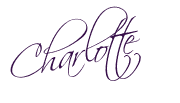It’s been almost thirty years, but I can still remember the “Eureka!” moment when I first learned about ADHD. Dr. Carlo Mellini was speaking to the faculty about a neurobehavioral condition recently identified as Attention Deficit Disorder. I was teaching kindergarten at the time, and every year, I’d notice few kids (usually boys) who seemed bright but were so distractible they had trouble functioning. As Dr. Mellini spoke, I realized that an “attention deficit” was exactly what I was seeing. Even though there was no extensive body of research back then (and no Internet!), from the little I could find, I realized that these students faced unique challenges in the traditional classroom. I also became convinced that there were things teachers could do to help them. I decided to test some ideas while studying for my Master’s degree. The results of my thesis project showed that some simple strategies could help ADHD students improve. Since ADHD currently affects over 9% of school-age children, it’s more important than ever to find ways to work with them. Here are some things parents and teachers can do.
Don’t take their impulsive behavior personally. Children with ADHD often say or do things without thinking about the consequences.
Involve your child in activities that will boost self-esteem. Dealing with the problems associated with ADHD can cause feelings of guilt, hopelessness, failure, and depression. Try to identify the child’s strengths or talents, and think of ways to capitalize on them.
Ask the teacher not to discipline your child by singling him/her out. Students with ADHD tend to be sensitive about their behavior. Calling attention to them can increase their feelings of frustration, and stress can make the behavior worse.
Suggest that the teacher use a discreet signal to help refocus your child’s attention. Children with ADHD are often unaware that their attention is wandering. A gesture (like a tap on the shoulder or a predetermined “secret sign”) can serve as a reminder to stay on task. Parents can do this too. The discreet signal can eliminate the nagging cycle that often triggers oppositional behavior. It also puts the focus on changing the behavior, not criticizing the child.
Help your child learn to express feelings more appropriately. Kids with ADHD are often unaware of how their behavior affects others and have difficulty “reading” people. Activities like conflict resolution, modeling or role-playing can help. So can teaching them to use “I” statements (ex. “I get upset when you stare at me” instead of “Quit staring at me!”)
Ask the teacher to seat your child where distractions are minimized, like the front of the class and away from windows and doors. Provide a distraction-free study area at home, away from the TV, where you can monitor your child’s work.
Help your child get organized. Suggest that he/she:
-Write down all assignments, and cross them off when finished;
-Clip all completed homework papers together where they’re easily accessible (like the inside front cover of the assignment book) and in the order they’ll be needed;
-Note important due dates, test dates, etc. on a calendar and cross off each day;
-Use different colored folders to separate work into subjects.
- Ask the teacher if he/she would be willing to sign your child’s assignment book each day to verify that all assignments have been copied correctly. Then you can sign the book when you’ve seen the completed work. The assignment book can also serve as a communication link between parent and teacher. If either has any questions or concerns, they can be noted in the assignment book.
Break down large tasks into smaller components. Kids with ADHD often have trouble managing time and can become overwhelmed if a task seems too complex. Focus on a single part of a task for a limited time (timers can be helpful here); take a break; then go on to the next. Tackle difficult jobs first, and save the easiest ones for last.
While these strategies can help ADHD students, the most important element in the equation is finding an understanding teacher who is willing to work with them and with their parents. This parent-teacher-student partnership is an unbeatable combination for school success.
Jackie has documented some of her classroom experiences in a novel titled Project June Bug, winner of several book awards, including a Mom’s Choice Award for Parenting/Special & Exceptional Needs. Project June Bug is available in paper or e-book from Amazon or any online bookseller. It can also be ordered through your favorite bookstore or Jackie’s website at www.jackieminniti.com.
Thank you, Jackie, for sharing these great tips for parents & teachers! I value your experience and insight!

No comments:
Post a Comment